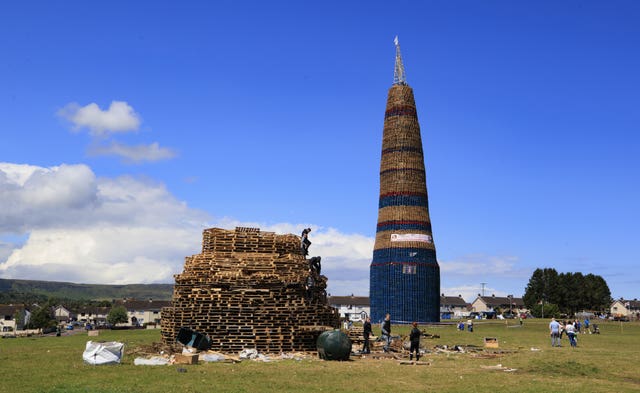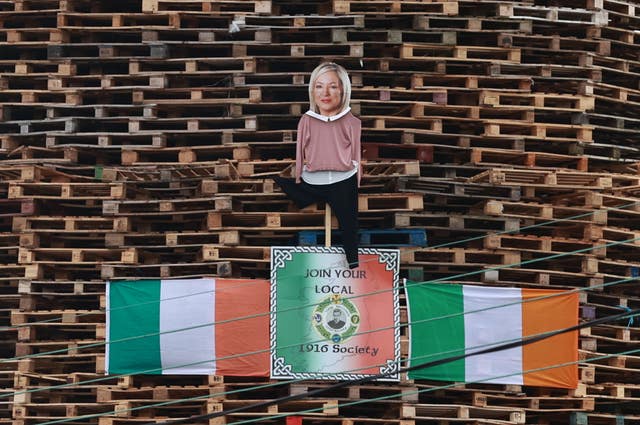Twelfth of July festivities ‘about celebration’ – DUP leader
Gavin Robinson was speaking ahead of the lighting of hundreds of bonfires on the eve of a day of loyal order parades.

DUP leader Gavin Robinson has hailed Twelfth of July festivities as being “about celebration” ahead of the annual lighting of hundreds of bonfires.
The majority of bonfires in loyalist neighbourhoods across Northern Ireland are lit late on July 11 ahead of a day of loyal order parades.
The fires, ranging from towering structures to beacons, are at an estimated 300 locations.
One of the tallest bonfires in recent years has been at Craigyhill in Larne, which reportedly reached 62 metres in 2022.

The bonfire was also adorned with an Irish tricolour flag and a banner reading “Saoirse don Phalaistin” – an Irish phrase for Freedom for Palestine.
Hundreds of people gathered to watch the tower burn.
In 2023, a boat was placed on top of the fire in Moygashel, themed as an anti-Northern Ireland Protocol bonfire.
Mr Robinson described the traditions around the Twelfth as “spanning the generations” and “intrinsic to who we are”.
“It is about publicly expressing our faith, our culture, our heritage. It is about celebrating, respectfully, our identity,” he said.
“In an increasingly diverse Northern Ireland, it is important that the Orange culture is celebrated positively, and afforded respect by all as we build a truly shared, tolerant society.
“As the leader of Unionism, I will work across government in London and Stormont, as well as local council, to ensure this cultural celebration is supported and its potential harnessed for Northern Ireland.
“I wish all those taking part in or attending parades across Northern Ireland on Friday, and indeed on Saturday at Scarva, a very enjoyable day.”
Most bonfires pass off without incident, but some continue to be the source of controversy.

In 2023 police received 68 reported incidents, including 21 alleged hate crimes, involving the burning of election posters or effigies, and 47 alleged hate-related incidents, including the burning of flags.
The fires are traditionally ignited on the eve of July 12, before thousands of members of the Orange Order and accompanying marching bands take to the streets at 18 locations across Northern Ireland to commemorate the Battle of the Boyne in 1690.
At the battle at the Boyne river, north of Dublin, King William of Orange defeated Catholic King James II to secure a Protestant line of succession to the British crown.
July 11 and 12 are among the busiest days of the year for the Police Service of Northern Ireland, who are expecting to deploy 4,000 officers and staff, about two thirds of the force, in a public safety operation.
The cost of the policing operation is expected to be about £4.5 million.





